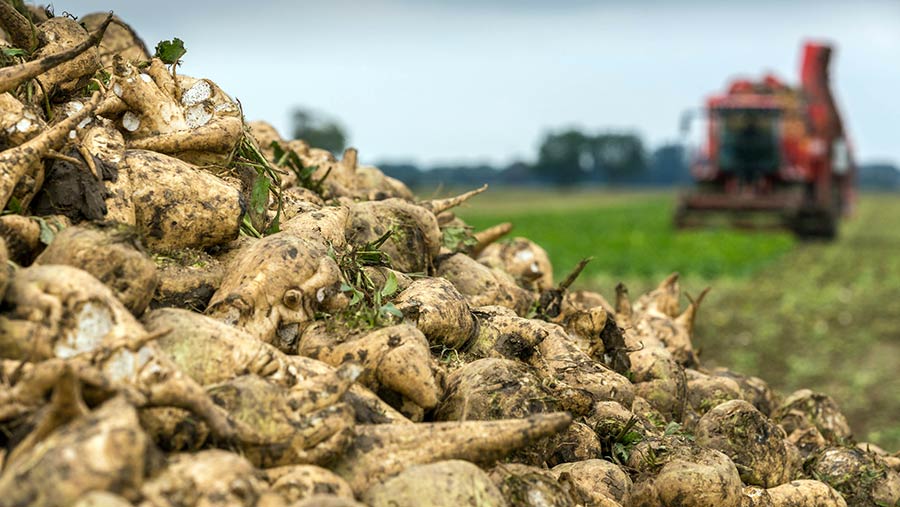Beet industry launches two yield-raising initiatives
 © Tim Scrivener
© Tim Scrivener Six demonstration farms and a yield competition are being launched in a bid to help sugar beet growers raise their yields closer to the magic 100t/ha level.
The two initiatives, being rolled out by the British Beet Research Organisation (BBRO), are designed to get growers and researchers working together in addressing key challenges holding back yields by improving agronomic practices.
As Simon Bowen of BBRO explains, UK sugar beet crops are achieving 50-80% of their full potential.
See also: Ropa Maus shifts a million tonnes of beet for Suffolk contractors
“The average yield is 75t/ha, but in variety trials we are getting 100-110t/ha,” he says. “The biological potential of the crop, given perfect conditions, is 153t/ha.”
These initiatives will also complement existing BBRO activities, such as the harvester testing programme and cover crop research, which have provided valuable data in their initial years.
Yield competition
The Beet Yield Competition, which remains open for entries ahead of drilling, aims to help growers get sugar beet crops to reach their maximum yield potential.
The competition provides a way to assess which crops can achieve the highest percentage of their potential and to recognise the agronomic and management regimes that can help, he adds.
“It’s a learning exercise as much as a competition,” he notes. “We will be able to compare actual and potential performance, understand what’s causing yield loss and provide comparisons between sites.
“Growers enter a whole field, including the headlands, of a minimum size of 2ha,” he explains.
Four winners – one from each factory area – will take part in a fully funded study trip to Spain.
Demo farms
The new BBRO demonstration farm network will put sugar beet in the spotlight at a planned series of farm walks and meetings during 2017.
Six commercial farming businesses have agreed to open their gates to other growers – with locations including Rougham, Newborough, Morley, Bracebridge, Snelland and Long Sutton.
“These farms are situated throughout the sugar beet growing area, and have very different soil types and growing challenges,” says BBRO head, Colin MacEwan.
“As such, there is a chance to question and learn from the host farmer, as well as other interested growers and our researchers.”
New approaches can be tested on the farms, providing an opportunity to discuss successes and failures in a regional context, he adds.
Harvester testing
A pilot harvester testing programme carried out in 2016 showed that root breakage was the greatest source of yield loss at the crop recovery stage.
While the average yield loss at harvesting was 2.6t/ha (or 3.7% of a 70t/ha crop), most of this occurred from root breakage at the clamp, rather than from surface losses associated with leaving small beet behind.
From 130 tests completed, surface losses were low at just 0.3t/ha.
“That may have been a seasonal effect from the kind conditions in 2016, as these are usually higher,” remarks Dr Bowen.
However, root breakage was responsible for losses of up to 10.7t/ha.
